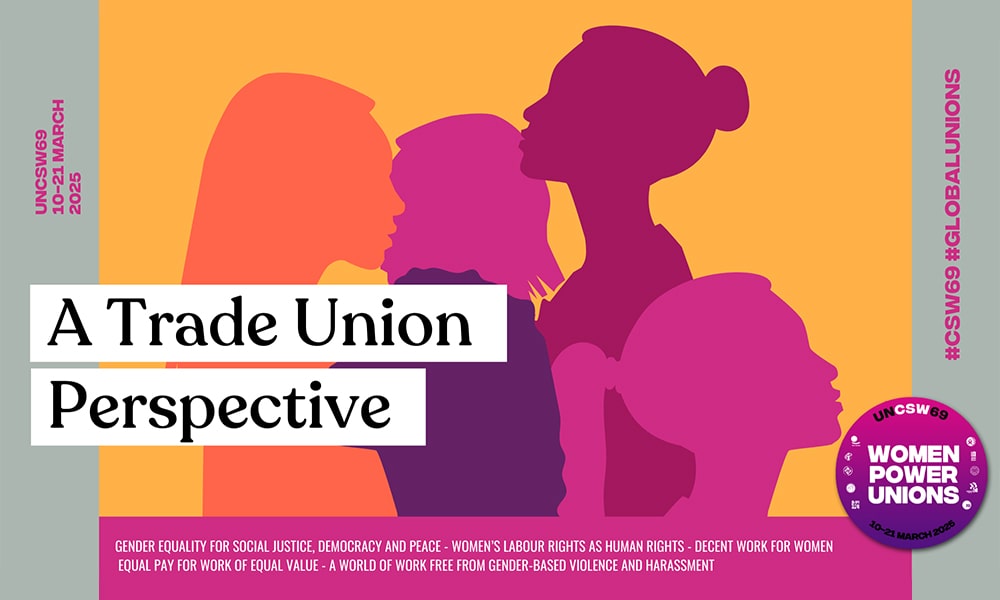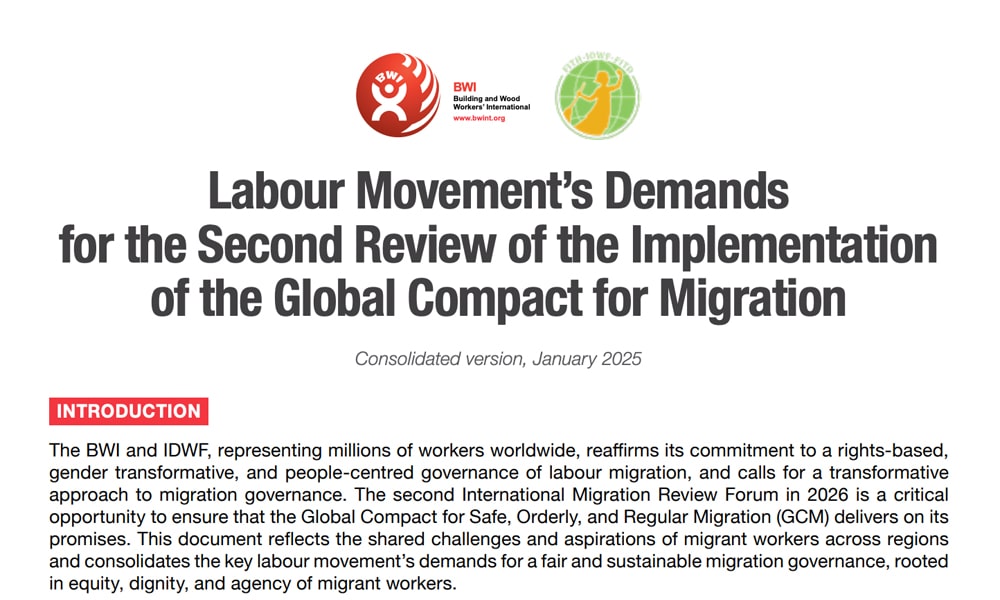There is no Social Justice without Decent Work for Domestic Workers

The commemoration of International Workers’ Day originated from the bloody repression suffered by workers at a factory in Chicago (United States) in 1886, for demanding an eight-hour workday. Today, almost one hundred thirty years later, and when most sectors of workers have achieved the rights they deserve, domestic workers continue to fight for decent working and living conditions.
Every day, nearly 75.6 million domestic workers make the well-being of our societies possible, providing vital care for the maintenance of households and families worldwide. Thanks to their work, hundreds of millions of men and women enjoy clean homes, homemade food, and tidy clothing. Domestic workers also care for children, the elderly, and sick or disabled individuals, filling the gap in public care policies and allowing those hundreds of millions of people to go to work, generating the necessary income to sustain their lives.
However, domestic work continues to be undervalued, unrecognized, and inadequately protected. While domestic workers, most of whom are women, represent 25% of the care workforce, they are still considered unskilled workers or worse, not even considered workers. This dominant -and contradictory- narrative has justified for centuries the absence of decent working and living conditions for them. Labor precarity is a common denominator for workers in the sector, either due to their exclusion from labor legislation and social security or due to the lack of effective implementation of existing regulations.
The latest report from the IDWF, “The Centrality of Care and Support from a Human Rights Perspective”, as well as other reports from the International Labour Organization (ILO), exposes this harsh reality:
- 36.1% of DWs are wholly excluded from national labor legislation.
- 50.1% of DWs have no legal entitlement to social security.
- In practice, only 6% of DWs are covered by all social security branches (ILO, 2022)
- Almost half of DWs remain excluded from specific provisions limiting working hours.
- 46% of DWs are not legally entitled to a minimum wage / Globally, DWs earn about half of the average monthly wage of all other workers (ILO 2023).
- 81.2% of DWs (61.4 million) remain in informal employment.
- In some countries, DWs (especially migrants) are excluded from the right to freedom of association and collective bargaining.
- 7.1 million children aged 5 to 17 years are engaged in child labor in domestic work.
- Domestic work is among the five sectors accounting for most of the total adult forced labor, and one of the main sectors where children in forced labor are found.
- Migrant DWs are often subjected to different forms of labor and human rights’ violations, such as exploitation, abuse, violence, harassment, and even modern slavery and human trafficking.
- DWs are particularly vulnerable to violence and harassment at work, as well as multiple and intersecting forms of discrimination based on their gender, race, ethnicity, class, and migration status, among other factors.
These data reflect a paradox: those who contribute the most to the care economy are the most disadvantaged in terms of labor rights and face the greatest challenges in meeting their own care needs. Domestic workers also provide unpaid care in their homes and for their families due to the absence of affordable (or free) public care services and the frequent lack of access to social protection. This contributes to increasing their workload and that of other women in their immediate circles, as well as limiting their participation in the labor market, thus perpetuating the cycle of poverty. Care must be a public good and a human right, for everyone without exceptions.
The global demand for care services is growing fast, highlighting the huge deficit in the availability of public care services and, at the same time, the vital importance of domestic workers in preventing an imminent care crisis (ILO, 2024). The future well-being of humanity will depend largely on investment in comprehensive care systems and how domestic workers are treated. Recognizing them as skilled care workers, with the same rights as other workers in the sector, and including them in national care policies, legal frameworks, and social protection is essential to ensure decent work for them while meeting the care needs of the entire population .
By adopting Convention 189 in 2011, the ILO sent a strong message to the world: domestic workers are workers and, like any other worker, they have the right to decent working and living conditions, by law and in practice. On May Day, IDWF’s President, Carmen Brítez, reaffirms that message: “Today is a very important date for the organized workers’ movement in all sectors, and for this reason, domestic workers make visible the struggle we have been carrying out for decades: it is time for States and societies to recognize domestic work as decent work with rights”.
There is no social justice without decent work for the workers who sustain the world with generous hands and resilient hearts. This May 1st, we honor and greet them warmly. Happy Workers’ Day, comrades!
Statement in:






